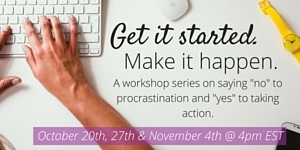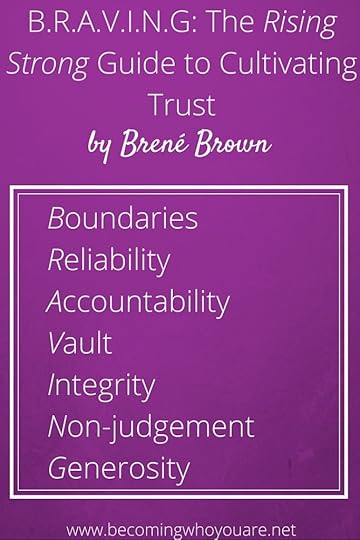Hannah Braime's Blog, page 22
October 18, 2015
Weekend Reading
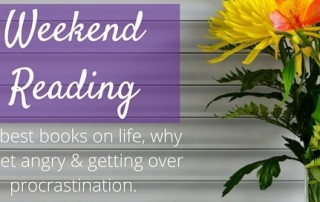
A guide to dealing with frustration and disappointment in yourself
What are the best books on life and meaning you should own a copy of?
5 important new insights about why we get angry
How to be content when life feels out of control
20 cognitive biases that screw up your decisions
4 ways to stop sabotaging yourself
Angry yoga:
In case you missed it:
Are your goals helping you or hurting you?
You are not entitled to other people’s compassion
How to manage your self-care when you have chronic health problems {podcast}
October 16, 2015
#88: How to Manage Your Self-Care When You Have Chronic Health Problems

This week’s episode is a solocast in response to a listener question about the best way to manage our self-care when we are dealing with chronic health problems. We know exercise it’s good for us, but some health issues leave us feeling like we’d rather do anything but. We also know some foods exacerbate our symptoms, but our pain levels leave us wanting to reach for that double-chocolate fudge whatsit for comfort.
So how do we balance our energy levels and willpower to make decisions that are good for us in the short- and long-term?
I’m sharing a few brief thoughts and ideas in this episode, including:
How to ask for help when you need it
How to maintain healthy self-care habits when you don’t have the energy
How to separate your identity from how your feel
…and more.
I’ve kept these fairly general and tried to make them applicable to dealing with most health issues, rather than a select few. Hope it’s helpful!
P.S. An additional post-recording afterthought: if you have specific dietary restrictions and are tempted to break them when you’re tired or feeling poorly, I recommend deliberately adding activities to your day that are enjoyable/comforting/soothing that don’t involve food. Make a list in advance so you have it to hand when you need it.
Struggling with all or nothing? Embrace #WYCWYC (what you can, when you can)
Click To Tweet
No one is going to take care of you for you.
Click To Tweet
Ask: “What is one thing I can do today that my future self will thank me for?”
Click To Tweet
Useful Links
Say Hello
Twitter: @hannahbraime
Facebook: The Becoming Who You Are Community
Subscribe to the Podcast
October 14, 2015
You Are Not Entitled to Other People’s Compassion
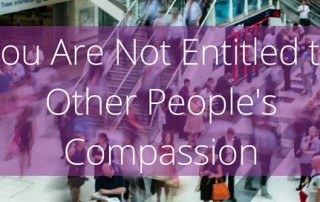
I truly believe the world would be a better place if we were all showed a little more compassion towards each other. What does not make the world a better place, though, is treating compassion as an entitlement.
Compassion is a gift, and entitlement poisons what compassion is about.
I get it; when we’ve been harbouring pain, fear and shame for a long time, compassion and empathy are like an oasis in the desert. It’s a relief, it unlocks something deep inside us, and it leaves us hungry for more.
The issues come when we take that hunger outside. And that hunger shifts from a searching to an expectation, like:
People should be compassionate to me because of how I’m feeling and/or what I’ve experienced.
No. People “should” not do anything. Compassion is a gift that, when given generously and freely, is an amazing and beautiful experience. It’s something we can choose to give ourselves.
But it’s not something we’re entitled to an endless supply of, regardless of how we show up or behave.
Compassion and empathy are earned, not owed.
Compassion is earned, not owed.
Click To Tweet
I’m sure you can think of certain people in your life who have built up enough compassion credit that you’d take their phone calls at 3am. I’m sure you can also think of people who have drained those credits to the dregs through poor behaviour and lack of reciprocity.
And this is where the spiritual conversation around compassion and empathy becomes problematic. Because desiring compassion—that’s human. Having the expectation that other people will give us special treatment regardless of how we show up—that’s entitlement.
It’s not someone else’s responsibility to tiptoe around our emotional challenges. It’s also not their responsibility to care for our emotional wounds for us.
Consciously or unconsciously, with every interaction, we are all making the choice to build our compassion credit or empty it out. If we take from someone without reciprocating, they don’t have an obligation to keep giving.
The same applies the other way around.
We are the keepers of our own compassion accounts. If someone drains their account dry, we aren’t obligated to keep offering them credit.
You and you alone are responsible for the energy you bring and the way you interact with the world. And other people are responsible for theirs.
In the words of Nathaniel Branden, “No one is coming to save you.” And that’s a good thing, because you don’t need saving.
You’ve got this, just as you are.
October 7, 2015
Are Your Goals Helping You or Hurting You?
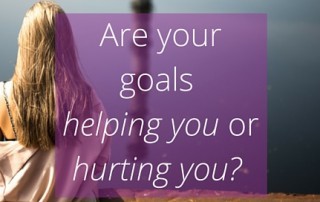
When I think back to different goals I’ve had in my life, I can differentiate between missions that were helpful and those that were harmful. There were the goals that came from a place of possibility and a desire to stretch myself. Then, there were also the goals that came from a scared place, a place of “not enough” and feeling like I needed to be more or different to be worthy.
In her book Breaking Free from Emotional Eating, Geneen Roth talks about the difference between these two types of goals. She calls these types “questing” and “striving”.
The difference between questing and striving is important, she says. This kinds of goals we aim for define our experience of life and have a huge impact on whether we end up creating the things we want.
Stagnation through Striving
Striving goals come from a place of not enough. They usually start with something like “I’ll feel happy/confident/secure/fulfilled/loved when…”
When we strive, we are self-protecting. We are protecting ourselves from the unfairness of life. We are also protecting ourselves from the uncomfortable and challenging feelings (like frustration, pain, hurt, rejection) that are part of the course of being human.
We get to channel those feelings into our striving for that particular thing, whether it’s a thinner body, a better job, a nicer house, a new car, a different lifestyle, a relationship, or something else.
Here’s the catch: because striving is self-protection, we’re also working very hard not to get those things. Because if we do, then that protection will be gone.
We’ll still be feeling the uncomfortable feelings and having the challenging experiences. Without our striving goals, however, we don’t have anything to channel those experiences into, nor anything to pin those feelings on.
We have to accept them as part of life.
As Geneen writes, we can get so obsessed with wanting that we never get down to actually living.
Are you so busy wanting that you’re not actually living?
Click To Tweet
Growth through Questing
Questing is an expression of courage and vulnerability. A quest stems from an intuitive belief and trust in the expression of what we’ve glimpsed in ourselves but not yet touched. Questing, comes from a desire to be our best selves and to have that obsession-based energy available to us for work and relationships.
Questing stretches us. Striving squashes us.
Click To Tweet
Geneen suggests the following exercise for getting clear on our own goals and whether they’re questing goals or striving goals:
Create the following lists:
1. Things I want that I don’t have (a new car? a thin body? A relationship? A Baby? etc.)
2. Things I’ve wanted that I’ve gotten
Now respond to the following journaling prompts:
3. Wanting allows me to… (What does it give you? How does it help you? Does it give you a pleasant fantasy, a goal to always be working on? Does it protect you from disappointments by keeping you locked into a fantasy?)
4. How my life would change if I got those things? Go down your list and next to each item you want write a brief description of what would happen if you got it. Be specific and honest. If you feel that having a baby would give you the chance to really love for the first time in your life and in doing so would complete you, write that. Don’t hold back, no matter how dreamy or romantic or ridiculous your imaginings sound. Better to get them on paper and look at them instead of holding them inside as vague, dreamy impressions.
5. How my life has changed now that I have what I wanted? Especially note things that have brought long-lasting happiness.
6. Look over your lists. Check reality against fantasy. Think about people you know who have gotten the things you want. Are they happy? Do they have what you think having would bring you? And what about the things you already have? What happened to the wanting when it changed to having? Do you think next time will be different? How?
How do you tell the difference between questing and striving when it comes to your own goals? Come and join the discussion in the BWYA Facebook group.
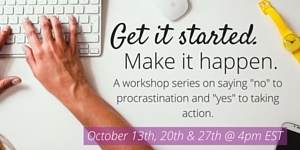 Say “no” to procrastination and “yes” to action this October with Get it Started, Make it Happen; a free workshop series on overcoming procrastination and turning ideas into reality. We’re starting next Tuesday, 13th October.
Say “no” to procrastination and “yes” to action this October with Get it Started, Make it Happen; a free workshop series on overcoming procrastination and turning ideas into reality. We’re starting next Tuesday, 13th October.
Image: Angelina Litvin via Unsplash
September 28, 2015
Get It Started, Make It Happen: A Free Workshop Series
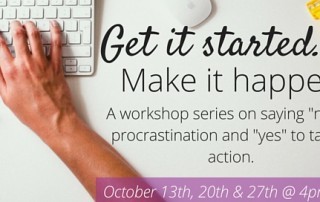
Procrastination is a perennial problem that affects everyone at some point. When we’re in the sticky middle of it, we tend to feel like we’re the only ones. In reality, this is a battle a lot of us are all fighting in our own ways.
One of the biggest struggles people seem to have with procrastination is the air of mystery around it. We know what we need to do, we know we need to do it… so why in the name of productivity aren’t we getting on with it? We do the things we’d usually do to overcome a problem (Google it! Read books on the topic! Talk to people about it!) but, deep down, we know these are just more ways of procrastinating.
The frustration sets in when the things we delay or postpone are things that lead to our growth and self-actualisation.
We experience internal conflict. One part of us says “Come on! Look at all this great stuff on the other side! Look at who you could be and what you could do!” Another part says “Forget about that part! WATCH CATS ON YOUTUBE.”
Stalemate.
The good news is that overcoming procrastination is not rocket science.
Inaction happens for a number of reasons that are 100% understandable and relatable. They are also 100% surmountable.
I’ve dealt with my fair share of procrastination-related problems over the last few years, and I see so many people who struggle with the same issues.
Get it Started, Make it Happen is for you if you have ideas—lots of ideas. They’ve been hanging around for a while, filling your head with all kinds of visions about how great you’re going to feel when they become reality. You know you’re capable of more.
But so far, they’re just ideas. As of today, you’re stalled when it comes to taking action.
That’s going to change.
I believe the world is much richer place when we have the courage to get off our butts, overcome the things that hold us back, and share our ideas and gifts with the world.
The world is a richer place when we have the courage to share our gifts, skills and vision
Click To Tweet
In this free workshop series, we’ll be covering the A to B journey you need to take to move from idea to reality.
Here’s the lowdown:
Workshop #1: Why we procrastinate (and what to do about it)
Tuesday 13th October, 4pm EST //2pm PST//9pm BST
Because knowledge and understanding = power to change. Identify your particular brand of procrastination and how to move through it.
Workshop #2: The action mindset
Tuesday 20th October, 4pm EST //2pm PST//9pm BST
By the end of this workshop, you’ll have identified the exact mindset shifts you need to make to get it done, make it happen and, most importantly, find gold in the process.
Workshop #3: Practical tools and suggestions for taking action right now
Tuesday 27th October, 4pm EST //2pm PST//8pm GMT*
5 practical suggestions you can use to get started on your next meaty project or challenge. Think Lifehacker meets GTD with a sprinkling of Psychology Today.
Register for free here
Spread the word
Do you know someone who might find this useful? Click the tweets below to share:
Get it started and make it happen with this free workshop series on overcoming procrastination
Click To Tweet
Say “no” to procrastination and “yes” to action with this free workshop series in October
Click To Tweet
September 22, 2015
How to Cultivate Self-Trust: Advice from Rising Strong by Brené Brown
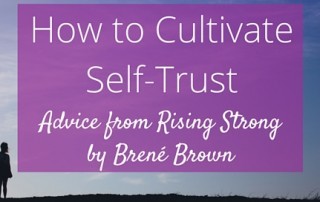
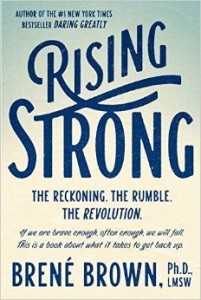 A couple of weeks ago, Brené Brown published her latest book, Rising Strong. If you’ve been anywhere near the internet at some point over the last couple of years, you’ve probably seen her now-infamous TED talk on vulnerability.
A couple of weeks ago, Brené Brown published her latest book, Rising Strong. If you’ve been anywhere near the internet at some point over the last couple of years, you’ve probably seen her now-infamous TED talk on vulnerability.
Rising Strong is the final book in a trilogy on how to live a whole-hearted life, following on from The Gifts of Imperfection and Daring Greatly. I won’t go into a synopsis of the book here (I shared more details in my Amazon review) but I highly recommend clearing your diary for this weekend to read all three titles.
One of the topics Brené covers in Rising Strong, and the topic I want to share with you today, is trust.
First of all, what is trust?
It’s a word we all know and use but what does it mean in tangible terms?
Brené quotes Charles Feltman, author of The Thin Book of Trust, who describes trust as “choosing to risk making something you value vulnerable to another person’s actions.” Meanwhile, distrust is deciding that “what is important to me is not safe with this person in this situation (or any situation).”
Even though the concept of trust and cultivating trust can feel a little abstract and nebulous at times, the good news is that there are key elements that influence our levels of trust. In Rising Strong, Brené shares a mnemonic that contains these ingredients, explaining that we can use them as a checklist to gauge trust levels in our relationships with others and with ourselves.
These ingredients are summarised with the (apt) acronym B.R.A.V.I.N.G.
B.R.A.V.I.N.G in Depth
Boundaries: Boundaries are HUGE. In a nutshell, they help us let the good stuff in and keep the bad stuff out—“stuff” being people, experiences, information, emotional states, and more. This is a meaty topic and something we explore in more depth in the Be Your Own Hero course.
Reliability: Doing what we say we’re going to do, when we say we’re going to do it. Being aware of our strengths and limitations and acting accordingly.
Accountability: Taking ownership for our behaviour, including making amends when we make mistakes
Vault: This is similar to boundaries but important enough to warrant its own category. In Rising Strong, Brené describes this as not sharing experiences that aren’t ours to share. In other words, it’s a combination of refraining from gossip, demonstrating empathy for other people, and not getting sucked into drama-driven situations.
Integrity: When our actions match our words and when we practice our values rather than just profess them. In Rising Strong, Brené also includes “choosing courage over comfort.”
Non-Judgement: Being able to ask for what we need and talk about how we feel without being judged (and vice versa for other people).
Generosity: Extending the most generous interpretation possible to the intentions, words and actions of others. I borrow the phrase “assuming the best” from Tara Swiger to remind me of this.
“Integrity is choosing courage over comfort.” – Brené Brown
Click To Tweet
As Brené explains, we can also apply these ingredients to ourselves to get a measure of our self-trust.
“B – Did I respect my own boundaries? Was I clear about what’s okay and what’s not okay?
R—Was I reliable? Did I do what I said I was going to do?
A—Did I hold myself accountable?
V—Did I respect the vault and share accordingly?
I—Did I act from my integrity?
N—Did I ask for what I needed? Was I nonjudgemental about needing help?
G—Was I generous towards myself?”
What do you notice as you apply these elements to your relationships with others and with yourself? Are there any that could use a little more attention?
Thanks for reading. If you know someone who might enjoy this post, please share it using the buttons below.
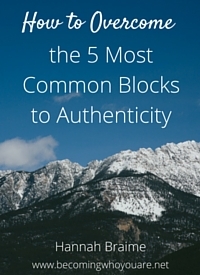 Want more? Enter your email below to get your free ebook How to Overcome the 5 Most Common Blocks to Authenticity. You’ll also get special updates and offers from Becoming Who You Are and are free to unsubscribe anytime.
Want more? Enter your email below to get your free ebook How to Overcome the 5 Most Common Blocks to Authenticity. You’ll also get special updates and offers from Becoming Who You Are and are free to unsubscribe anytime.
Get your ebook here
Image: Nirzar Pangarkar
September 20, 2015
10 Powerful Books on Self-Care That Will Enrich Your Life

Self-care is an important topic that many of us don’t make time to learn about until we get sick, hit burnout or otherwise have to.
Let’s stop that cycle!
Below are some of my favourite books on self-care and self-kindness. What are yours? Come join the discussion on Facebook.
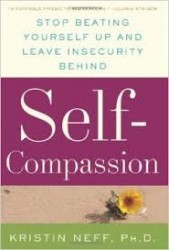
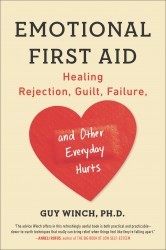
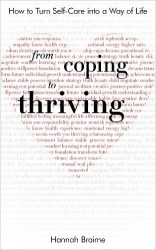
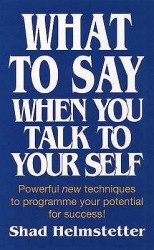
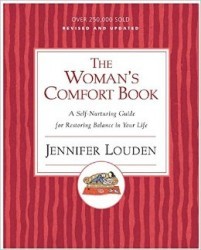
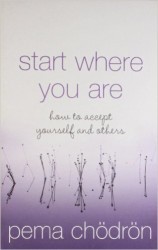
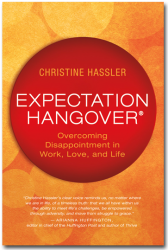
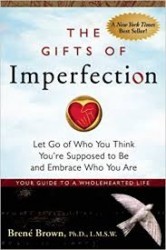
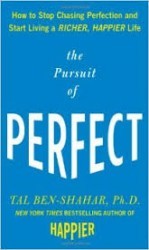
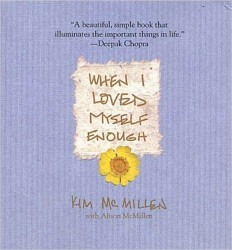
Thanks for reading. If you know someone who might enjoy this post, please share it using the buttons below.
 Want more? Enter your email below to get your free ebook How to Overcome the 5 Most Common Blocks to Authenticity. You’ll also get special updates and offers from Becoming Who You Are and are free to unsubscribe anytime.
Want more? Enter your email below to get your free ebook How to Overcome the 5 Most Common Blocks to Authenticity. You’ll also get special updates and offers from Becoming Who You Are and are free to unsubscribe anytime.
Get your ebook here
Image: Mathieu Nicolet via Unsplash
September 14, 2015
Other People’s Choices Don’t Define Whether We Are Good Enough

This post was inspired by Jen Pastiloff.
One of the first ever guest posts I wrote was about my experiences of long-term travel, and one of the first comments I received on that post was a disgruntled reader complaining that they were sick of reading about privileged young people who could afford to drop everything and travel around the world.
Although his comment wasn’t reflective of my situation, I couldn’t help thinking:
So what?
So what if there are privileged young people who can afford to drop everything and travel around the world? So what if people want to share their experiences, of travel, losing weight, knitting competitions, or anything else they happen to be interested in? Even if the entirety of my post had been a tirade against people who don’t make the same life choices as I do…
So what?
Other people’s experiences, beliefs, and choices have zero impact on whether or not we are “good enough” in our own lives.
This includes, but is not limited to: appearance, lifestyle choices, diet, bank balance, career, relationships, car model, house size, number of offspring (or not wanting offspring), awards won, records broken, or anything else.
The things that we all want—to feel enough, to be loved, to be accepted, to be safe, to be seen, to feel alive—none of these things are finite resources. Someone having and enjoying those things in their life doesn’t take away from the next person’s ability to have and enjoy them too.
It’s not other people’s choices that take away from our sense of worthiness—we do that. Especially when we compare ourselves to them and expect ourselves to be anyone different than who we currently are.
As individuals making our own ways in the world, it’s our job to decide what “good enough” looks like in own own lives, and remember that no one else’s words, choices or actions can change that.
Other people’s experiences, beliefs and choices don’t define whether we are good enough.
Click To Tweet
Thanks for reading. If you know someone who might enjoy this post, please share it using the buttons below.
 Want more? Enter your email below to get your free ebook How to Overcome the 5 Most Common Blocks to Authenticity. You’ll also get special updates and offers from Becoming Who You Are and are free to unsubscribe anytime.
Want more? Enter your email below to get your free ebook How to Overcome the 5 Most Common Blocks to Authenticity. You’ll also get special updates and offers from Becoming Who You Are and are free to unsubscribe anytime.
Register here
Email Address
September 13, 2015
Weekend Reading
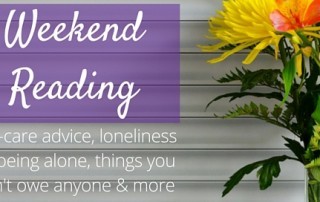
The coddling of the American mind {wow, just wow. Great read.}
5 ways to make the best of a bad situation
When first aid self-care isn’t enough
The difference between loneliness and being alone
15 things you don’t owe anyone at all (even though you think you do)
Why we “click” with some people and not with others
Enough feeling guilty about living well
“Ninjas need boundaries too.” 8 ways to talk to difficult people
September 7, 2015
How to Complain Effectively (and Actually Change Something)
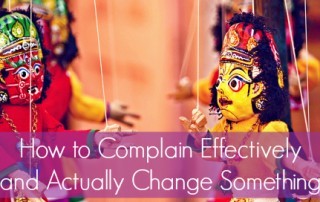
We all know deep down that complaining isn’t good for us—or much fun for the person we’re complaining to. At the same time, we also sometimes encounter situations we need to talk about afterwards so we can process wtf just happened.
Processing is different to complaining in that it’s constructive and helps us make sense of the situation. In other words, it’s effective complaining (N.B.: we don’t want to complain about the same things repeatedly if we’re not going to do anything about them).
As someone who has been known to (ahem) complain here and there, here are a few tips I’ve found helpful for upping my complaining game and doing it as effectively and constructively as possible:
1. Check your assumptions
So many conflicts blow up because we make assumptions and then behave as if our assumptions are the truth. We have a natural tendency to fill gaps in our understanding by creating meaning where there is none. But, when we take this meaning as fact, we are on the fast track to Wrong Conclusionville.
So many conflicts blow up because we make assumptions, then behave as if they’re true.
Click To Tweet
When it comes to assumptions, I like to follow Tara Swiger’s advice: assume the best at first.
This is never truer than with email and social media (or anything text-based). I used to feel slighted when someone would send me what I perceived as a curt email. Then, my inbox became busier, and I realised that brevity is a useful—and necessary—tool. When I assume the best, I save the energy I would have used for unnecessary complaining and can channel it into something far more productive.
2. Be upfront
Sometimes, even when we assume the best, the best is still complain-worthy. In these situations, upfront conversations about our experience with the people concerned serve our sense of integrity far better than gossiping about it to other people.
Complaining about someone behind their back and not having that conversation with them if the opportunity arises is bad form. I’ve done this, and it’s waaaay harder to have that tough, often vulnerable, conversation with someone when I know I’ve been Grumpy McWhinypants about them to a third party.
And, if upfront conversations aren’t possible or appropriate? Then it’s our responsibility to sort out our feelings and make sure we’re not ruminating until the ends of time. It’s not in our best interests to give energy or attention to someone with whom we’ll never be able to get closure.
3. Lead with “I-messages”
I-messages are statements about our feelings, thoughts, beliefs, and other aspects of our experience. In general, these start with “I feel/think/believe… etc.” When we’re annoyed with someone’s behaviour, we tend to default to “you” messages. These start with “You did this/you said that…”
Effective complaining focuses on “I-messages” because it keeps us focused on our experience. Rather than wandering off into assumptions, stories and untruths about the other person, we stick to what is true for us.
At the end of the day, we don’t know 100% know what was going on for the other person unless we ask them. It doesn’t do us any good to dwell on what they did or said (or didn’t do/didn’t say). If we focus on our own feelings and experience, we can take responsibility for our reaction to the situation and extract useful lessons from it.
4. Leave your ego outside the conversation
Although it’s not something I’m proud of, I’m the first to admit that I get hung up on justice. When I feel wronged, I want other people to agree with me. I want backup and validation that I am, of course right and that the other person is, of course, out of order.
Hey there, ego.
Of course, just because we feel wronged doesn’t mean we’re in the right by default. We are more than capable of being unreasonable too.
This is why it’s important to check our egos at the beginning of the conversation. When we’re invested in needing to be right beyond the point of being rational, we miss out. We miss out on connection. We miss out on the truth. Most of all, we miss out on valuable learning experiences that help prevent us getting into complain-worthy situations in the future.
When we’re invested in needing to be right beyond the point of being rational, we miss out.
Click To Tweet
Remember, effective complaining isn’t about complaining at all. It’s about processing, moving forward, and coming out the other end a little wiser and more experienced.
What do you find useful when you’re processing tricky situations? Join the Becoming Who You Are Facebook community and share your thoughts.
Further reading: are the stories you tell yourself helpful? Really? & is your life full of drama? Here’s how to stop the cycle
Image: Sagar Dani

